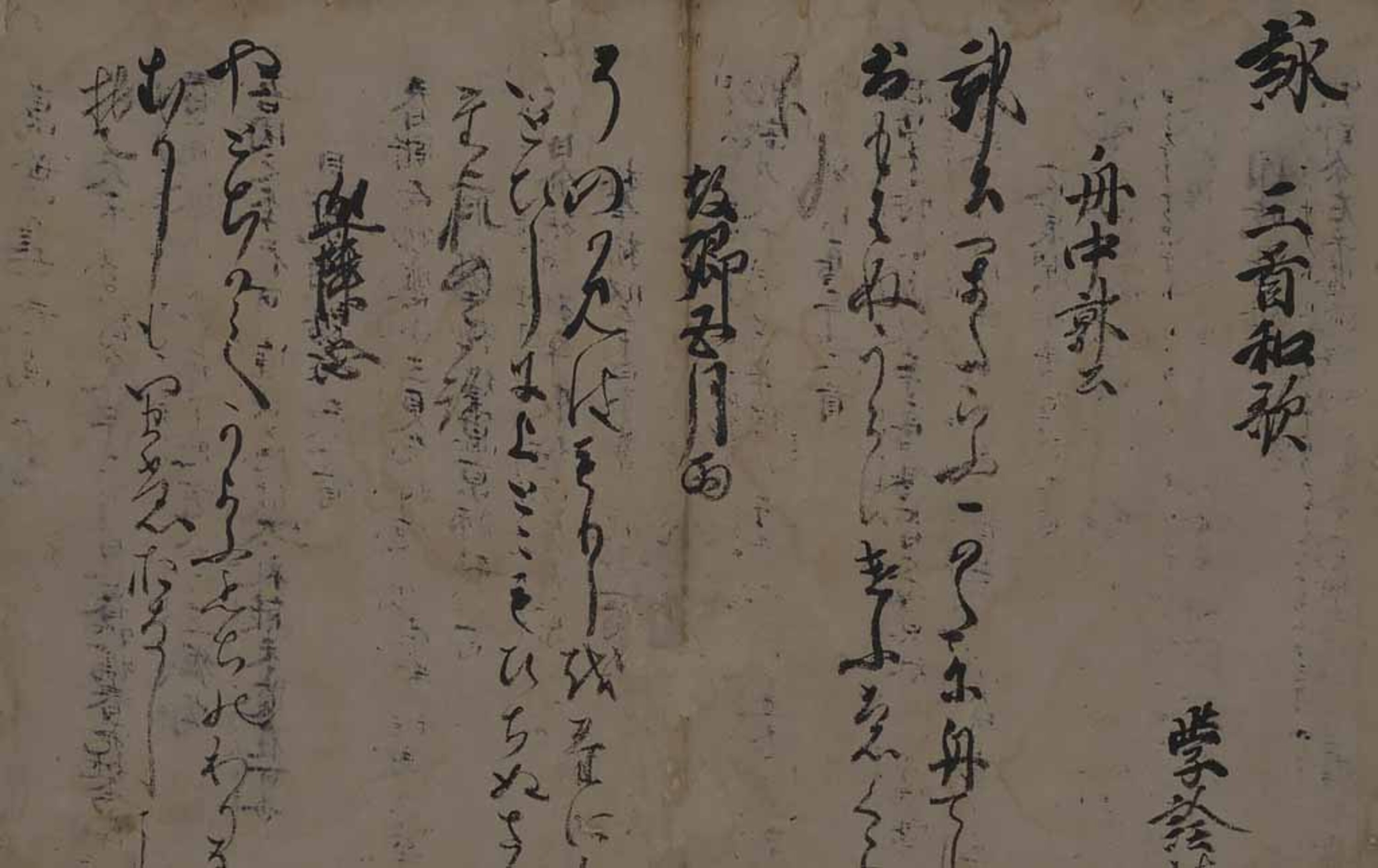- TOP
- Three Waka (Japanese Poem) Verses (Known as Kasuga Kaishi)
Overview
Three Waka (Japanese Poem) Verses (Known as Kasuga Kaishi)
- Museum No.
- BK555
Showing 1-6 of 1
| Title | Three Waka (Japanese Poem) Verses (Known as Kasuga Kaishi) |
|---|---|
| Designation | |
| Artist | Dharma Master Gakusen |
| Category | Calligraphy(B), Japanese Calligraphy |
| Country | Japan |
| Period | Kamakura |
| Century | 13th |
| Year | |
| Quantity | |
| Materials | |
| Dimensions | Height 27.9cm Width 42cm |
| Inscription by | |
| Signature/Seals Etc | |
| Donor |
This object may be one within a set or the title of a set. To see all objects in the set, perform a Category Search by the Museum Number below, entering numerals only before the hyphen.







Kasuga kaishi is a collection of poems composed at poetry gatherings by the head priests and monks of Kasuga Shrine and Kôfuku-ji Temple in Nara. This work contains three poems composed by the monk Gakusen of Kôfuku-ji Temple sometime before 1244 (Kangen 2). The back of the paper bears the inscription Man'yôshû (E., Collection of Ten Thousand Leaves) copied by Nakatomi Sukesada (1198-1269), who used it as scrap paper for calligraphy. A line in the center of the work reveals that it was in the form of a booklet at the time the calligraphy was done.
Japan-Kamakura